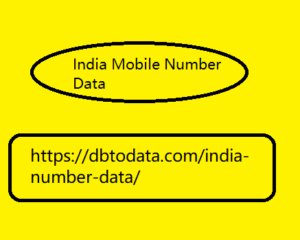Post by account_disabled on Mar 12, 2024 10:22:45 GMT 5
Many have interpreted Personal Branding as the continuous and forced promotion of one's image. Creating your own "brand" is easy, all you need is a good photographer, a name enriched by a good biography and at that point a content activity entirely aimed at spreading your "brand" begins. Selfies , self-quotes and the continuous narration of one's "successful" life. But this is not Personal Branding! The brand differs from the brand due to the intangible values transmitted and the perception of reliability, safety and professionalism that accompany it.
Having a communication entirely aimed at the brand, or rather India Mobile Number Data towards one's name and face does not bring value, but only a vague unmanaged diffusion, at the mercy of the public's personal impressions which, not being governed by the contents, risk transmitting erroneous perceptions or negative. Today more than ever we must stop being a brand to become a unique brand, surrounded by elements that are perceived and which we attempt to manage through the communication that concerns us. From the “Unique selling proposition” to the “Experience selling proposition” As this article explains , branding has evolved over the years and has adapted to the needs of those who benefit from it: people. If in the 1950s the Unique selling proposition (USP) was a valid reason for purchasing by the public who understood the specific value of a product through the highlighted characteristics, today this is no longer enough.

Just like a product, even if you have a convincing image and correctly communicate professionalism and reliability, an additional element may be necessary to gain credit from the interlocutor. Without bothering marketing books, experience has always been a characteristic of human beings. It matters just as much as the quality of the products or services, but many forget this and imagine that a landing page is enough to sell or a LinkedIn profile to get hired. Just as companies have understood the urgency of moving from the USP to the Experience selling proposition (XPS), it must be reiterated to the many who have not understood it, that for one's personal brand it is essential to cultivate a climate of trust and reliability through relationships and excellent impressions. Content manages perceptions. You won't create a "brand" by dint of selfies and bar chats, but by building value through the sharing of useful information.
Having a communication entirely aimed at the brand, or rather India Mobile Number Data towards one's name and face does not bring value, but only a vague unmanaged diffusion, at the mercy of the public's personal impressions which, not being governed by the contents, risk transmitting erroneous perceptions or negative. Today more than ever we must stop being a brand to become a unique brand, surrounded by elements that are perceived and which we attempt to manage through the communication that concerns us. From the “Unique selling proposition” to the “Experience selling proposition” As this article explains , branding has evolved over the years and has adapted to the needs of those who benefit from it: people. If in the 1950s the Unique selling proposition (USP) was a valid reason for purchasing by the public who understood the specific value of a product through the highlighted characteristics, today this is no longer enough.

Just like a product, even if you have a convincing image and correctly communicate professionalism and reliability, an additional element may be necessary to gain credit from the interlocutor. Without bothering marketing books, experience has always been a characteristic of human beings. It matters just as much as the quality of the products or services, but many forget this and imagine that a landing page is enough to sell or a LinkedIn profile to get hired. Just as companies have understood the urgency of moving from the USP to the Experience selling proposition (XPS), it must be reiterated to the many who have not understood it, that for one's personal brand it is essential to cultivate a climate of trust and reliability through relationships and excellent impressions. Content manages perceptions. You won't create a "brand" by dint of selfies and bar chats, but by building value through the sharing of useful information.
